Based on research in the north-eastern region of Colombia, Priscyll Anctil Avoine reflects on the gender approach in the Colombian Peace Agreement with the FARC-EP and critically assesses the first five years of the implementation of agreed gender provisions.
The Peace Agreement signed on November 24, 2016, between the Revolutionary Armed Forces of Colombia (FARC-EP) and the Colombian government has been acclaimed as the most gender-sensitive peace negotiation globally. Female ex-guerrilleras from the FARC-EP – the farianas – together with women and feminist organisations, were at the forefront of including a gender perspective in the final peace deal. Five years later, what are the lessons learned? Do the farianas feel reincorporated into civilian society? What are the tensions surrounding their political participation? How are they navigating the peacebuilding landscape?
Highly acclaimed gender approach
Born as a self-defence peasant group, the FARC-EP has been one of the most significant insurgent groups fighting against the Colombian State for almost 60 years. After five years of negotiations with the Colombian government, they finally reached an agreement in 2016, with the FARC-EP officially becoming a political party in 2017. Following this agreement, more than 13,000 combatants began their return to ‘civilian society’ and were expected to re-embody civilian values and norms through the Disarmament, Demobilization and Reintegration (DDR) programme.
At the beginning of the official peace talks in 2012 between the FARC-EP and the government, both actors were criticised by civil society organisations due to their lack of inclusion of women and LGBTIQ+ collectives at the table. However, as the talks progressed gender recommendations from grassroots organisations were included, and farianas became highly involved in the peace talks, leading to a participation level of around 30-40 per cent, representing the gender composition of the armed insurgency.
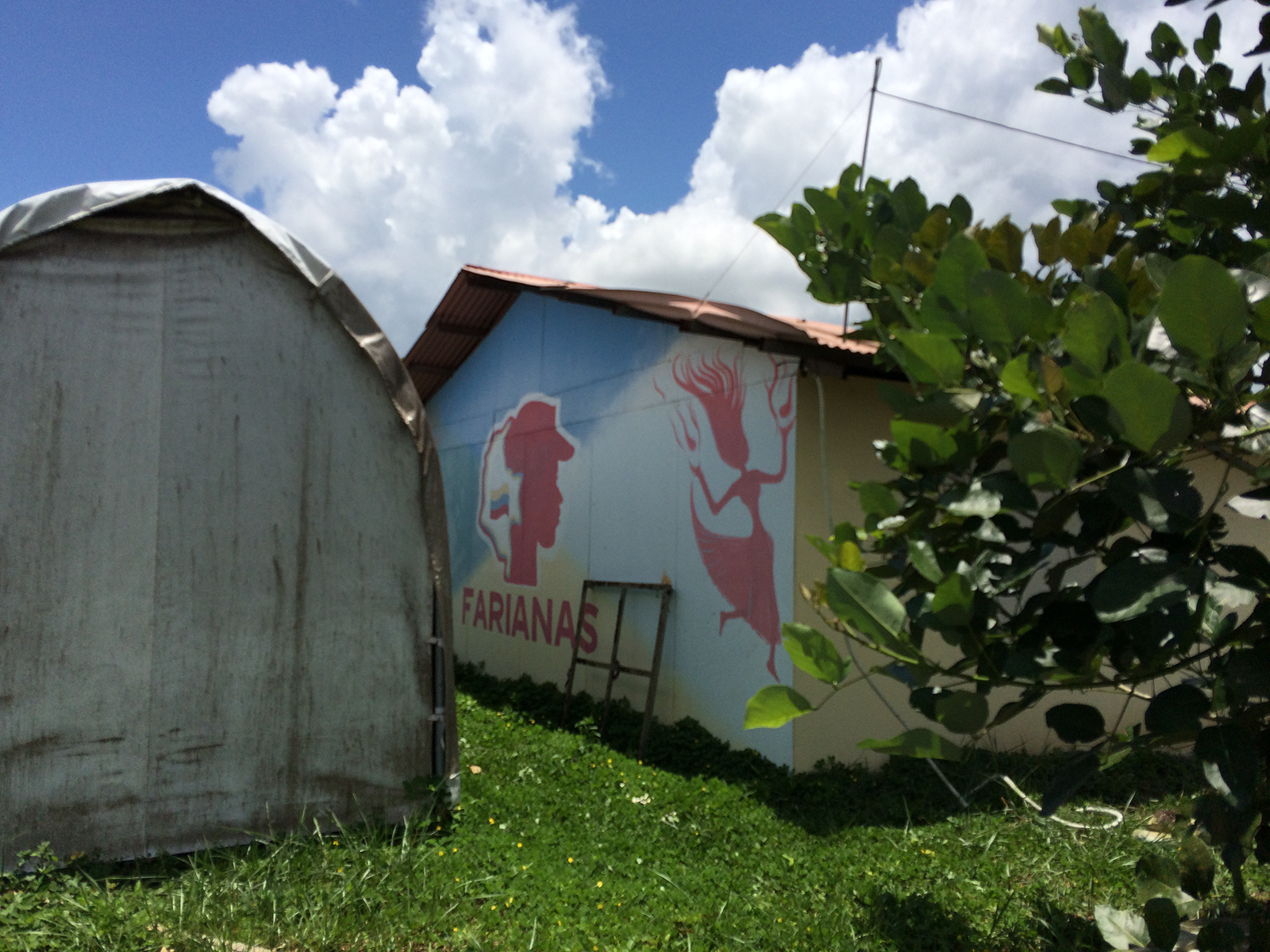 Mural, Territorial Training and Reincorporation Space, Filipinas, Arauca
Mural, Territorial Training and Reincorporation Space, Filipinas, Arauca
During the negotiation, the farianas were in dialogue with the feminist and women’s movement and proposed a gender sub-commission that would ensure gender mainstreaming of the different points on the negotiation agenda. The farianas achieved this in many central aspects of the Peace Agreement, such as land access for women, prevention of gender-based violence, access to justice and reparation programmes, and political participation. Their meetings with female ex-combatants from countries such as Nepal, El Salvador and South Africa helped them design strategies that would centre on political participation and care economies with the refusal of “trading weapons for cooking pots”.
Later in the peace process, they created their own web page – Mujer Fariana – and proposed a set of principles of “insurgent feminism” to ensure the fariana’s reincorporation, but also more broadly to advance gender equality in many rural territories of Colombia, where violence is still widespread. However, five years after the Peace Agreement, many difficulties remain for female ex-combatants and gender inequalities persist.
 Mural, Territorial Training and Reincorporation Space, Caño Indio, Norte de Santander (Catatumbo).
Mural, Territorial Training and Reincorporation Space, Caño Indio, Norte de Santander (Catatumbo).
Turbulent years: the difficult landscapes of ‘peace’
The FARC-EP has not rearmed, however, many dissidence groups have proliferated. For example, the National Liberation Army of Colombia (ELN) guerrillas are still armed and active, and the country faces a resurgence of paramilitary groups. There has been an upsurge of violence in Colombia, especially since the 2018 election of President Duque, a conservative opponent of the FARC-EP peace process, coupled with massive migration across the border with Venezuela, a global pandemic, and controversial implementation of the final agreement. On top of this, massive protests in 2019 and 2021 have exposed that harsh inequalities persist in the country and that militarisation and State repression is still the response of the government against its population.
Since Duque’s election in 2018, his administration has made many changes to what has been agreed in terms of transitional justice and agrarian reform, without consulting the FARC-EP, as the other party to the deal. If we can argue that some signs of progress have been made with the transitional justice system and the possibility of political participation in remote areas of Colombia, those successes are hindered by “a new cycle of war” in the countryside: more than 1200 human rights activists and nearly 300 ex-combatants have been murdered since the peace deal was signed in 2016.
Despite critiques of slowness, ineffective implementation and elusive structural changes, President Duque insists to the international community that he is complying with the agreement. However, as the former high commissioner for peace, Sergio Jaramillo, argues, the current violence is a direct consequence of the vacuum left by the FARC-EP and the inability of Duque’s government to propose an efficient security strategy.
If we can argue that some signs of progress have been made with the transitional justice system and the possibility of political participation in remote areas of Colombia, those successes are hindered by “a new cycle of war” in the countryside
Female ex-combatant’s political participation
One of the significant components of the Peace Agreement was gender provisions regarding female ex-combatants’ political participation. Since we first met in 2019, Kate, a FARC-EP ex-guerrillera and now female leader activist in north-east Colombia, and I have discussed the progress and pitfalls of ex-combatants’ political participation. For her, the Agreement is “the possibility to do politics, although with difficulties, but reaching places that were not accessible before for female ex-guerrilleras”. In this process, the international community has played an essential role in guaranteeing the mainstreaming of gender. For Kate, this approach has been central to farianas’ political engagement: “this has been quite important because almost all the organizations that come to the territory require the inclusion of women in the different processes and this is supported by what the agreement says with respect to gender”.
 Mural, Territorial Training and Reincorporation Space, Caño Indio, Norte de Santander (Catatumbo).
Mural, Territorial Training and Reincorporation Space, Caño Indio, Norte de Santander (Catatumbo).
The farianas extensive plan for their reincorporation insisted on the centrality of care and the importance of becoming political leaders. In a recent reunion of the national committee Mujer, Género y Diversidad (Women, Gender and Diversity), Kate was happy and proud of seeing “all those women leaders, empowered, autonomous,” clarifying that “we were there before, it is only that we were invisibilized completely; but we are [now] mobilizing our strengths and assuming our role as empowered women, as women who make decisions, as women who can contribute a lot to this peace process.”
Nevertheless, many of them are also caught in between their willingness to participate politically and their reincorporation into ‘civilian life’ that comes with the re-embodying of societal gender norms. For Kate, some women have been absorbed by parenting and housework; they slowly went back to care work and have left their political engagements. However, she also argues that some women have been able to become mothers and defy at the same time the traditional conceptualisation of women. This is part of the goals established by the farianas’ strategy for their reincorporation: thinking about insurgent femininities and masculinities, where motherhood will not impede political participation.
“we were there before, it is only that we were invisibilized completely; but we are [now] mobilizing our strengths and assuming our role as empowered women, as women who make decisions, as women who can contribute a lot to this peace process.”
However, most of the time, women’s political participation is dependent on the hard – and usually voluntary – work of the women themselves or on international community support – intended to be of a temporary duration. On top of this, issues have arisen since the early reincorporation process: research shows, for example, an increase in gender-based violence among ex-combatants and, even though female ex-FARC-EP are “technically” allowed to participate in politics, current tensions are arising within the political party concerning internal procedures, gender and feminism. Additionally, Kate insists: “in the country, violence has intensified against leaders, women leaders, indigenous people, and all those who decide to struggle for the construction of a different country; that is, all those who lead any process that goes against the interests of the ruling class are assassinated.”
Many farianas feel at the border between two worlds; for example, some have not changed the name they used in the insurgency and many inhabit multiple, embodied, geographical and ideological identities in their process of returning to civilian society. Kate always describes this process as one of “learning to unlearn”: becoming a ‘citizen’ means transiting through different and sometimes contradictory emotions and identities. Unfortunately, this has been historically the missing point of DDR programmes: the embodied emotional and political trajectories of female ex-combatants. The transition should not be a “perpetual waiting” for better living conditions or the “task” of ex-combatants: ‘civilian society’ should also transition to nonviolent gender relations to build a lasting peace in Colombia.
All images copyright: Priscyll Anctil Avoine
The views, thoughts and opinions expressed in this blog post are those of the author(s) only, and do not necessarily reflect LSE’s or those of the LSE Centre for Women, Peace and Security.


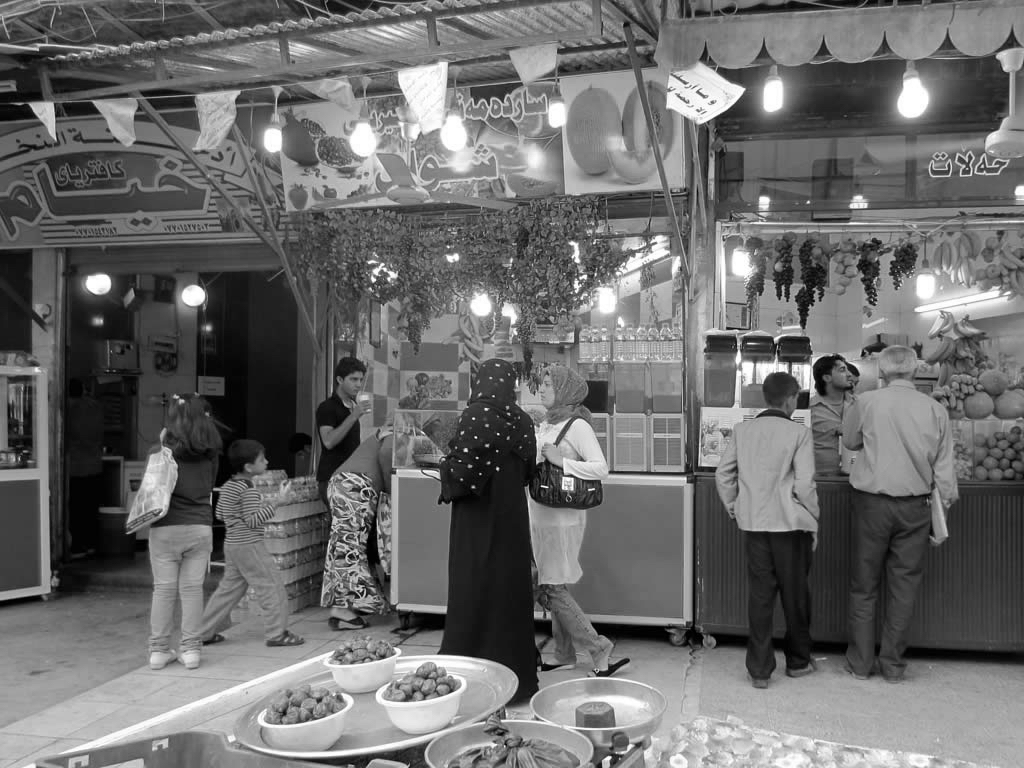
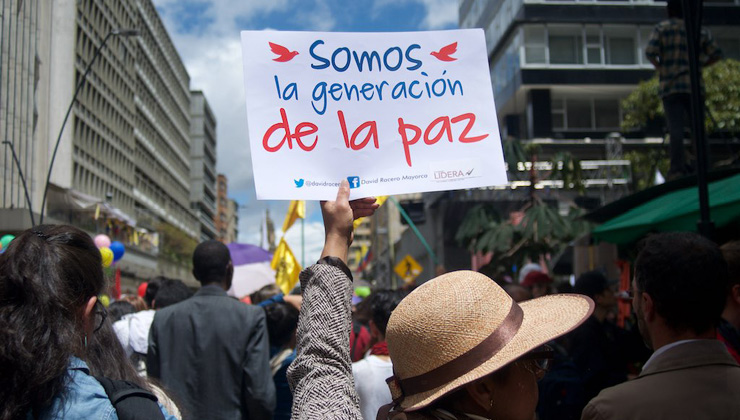
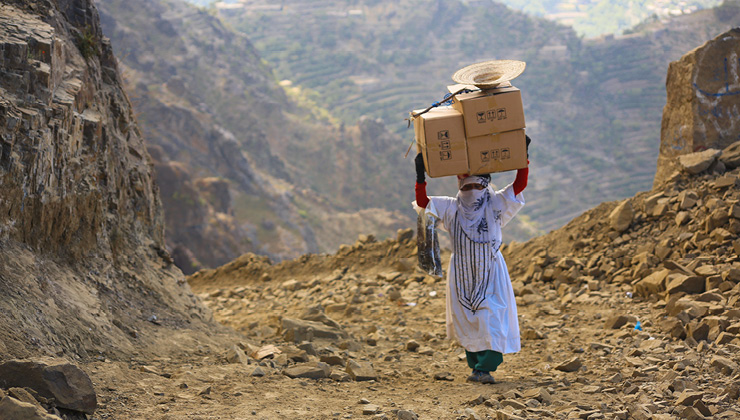
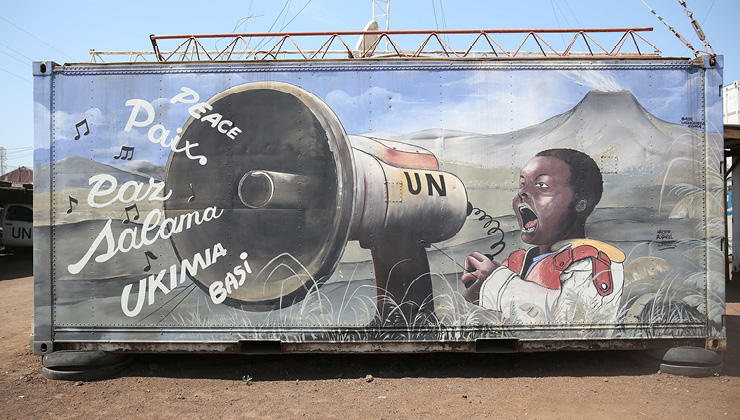
Dear Priscyll,
Thanks so much for this very interesting piece. If I wanted to learn more about how issues related to land and transitional justice have evolved/changed in Colombia from a gender and women’s empowerment perspective since the peace agreement, what would you recommend that I read?
Thanks so much,
Alina Rocha Menocal
Principal Research Fellow, Politics and Governance
ODI
a.rochamenocal@odi.org.uk
Dear Alina,
Thank you so much for reading the piece and for your interest in women’s involvement in land / transitional justice.
I think there is plenty of fantastic work that has been done since the peace agreement, but some of the ones that come to my mind are the following:
-Rodríguez Castro, Laura. 2021. Decolonial Feminisms, Power and Place: Sentipensando with Rural Women in Colombia. Cham: Springer International Publishing.
-Mendia Azkue, Irantzu, Gloria Guzmán Orellana & Iker Zirion Landaluze, eds. 2017. Género y justicia transicional: movimientos de mujeres contra la impunidad. Bilbao: Hegoa.
-Meertens, Donny. 2019. Elusive Justice: Women, Land Rights, and Colombia’s Transition to Peace. Madison: University of Wisconsin Press.
-Medina García, Paula. 2018. “Mujeres, polifonías y justicia transicional en Colombia: narrativas afrocéntricas de la(s) violencia(s) en el conflicto armado”. Investigaciones Feministas 9(2): 309–26.
-Weber, Sanne. 2017. “The Unhappy Marriage of Vitimhood and Citizenship in Transitional Justice: Exploring the Potential of Gender-Just Transformative Reparations in Colombia”. PhD Dissertation. Coventry University.
-Paarlberg-Kvam, Kate. 2019. “What’s to Come Is More Complicated: Feminist Visions of Peace in Colombia”. International Feminist Journal of Politics 21(2): 194–223.
And those ones are before the peace agreement, but I think they are still very useful:
-Meertens, Donny. 2015. “Discursive Frictions: the Transitional Justice Paradigm, Land Restitution and Gender in Colombia”. Papel Politico 20(2): 353–81.
-Meertens, Donny & Margarita Zambrano. 2010. “Citizenship Deferred: The Politics of Victimhood, Land Restitution and Gender Justice in the Colombian (Post?) Conflict”. International Journal of Transitional Justice 4(2): 189–206.
I hope this is useful for you 🙂
All the best,
Priscyll